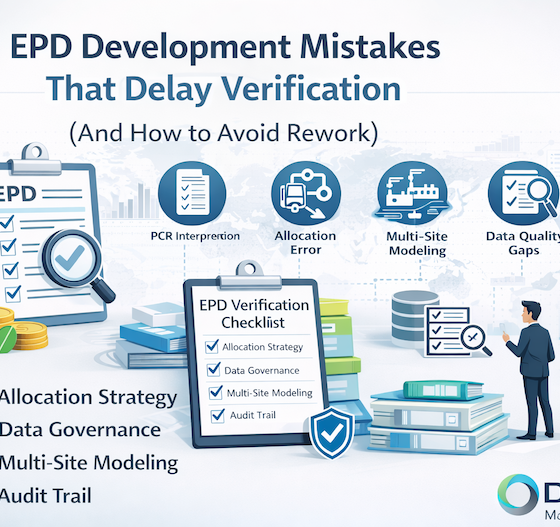EPD Development Mistakes That Delay Verification (And How to Avoid Rework)
EPD modelingEPD data qualityEPD Development Mistakes That Delay Verification (And How to Avoid Rework)Environmental Product Declarations (EPDs) are increasingly required for:Green building procurementPublic infrastructure tendersEU taxonomy alignmentScope 3 supplier transparencyCarbon disclosure credibilityYet many EPD projects stall during third-party verification.Not because of formatting issues.Not because of minor calculation discrepancies.But because of structural methodological weaknesses.Below are the most common technical failures that delay verification — and how to avoid rework.Allocation Decision RiskThe ProblemAllocation errors are among the most common causes of verification…
Read more

















